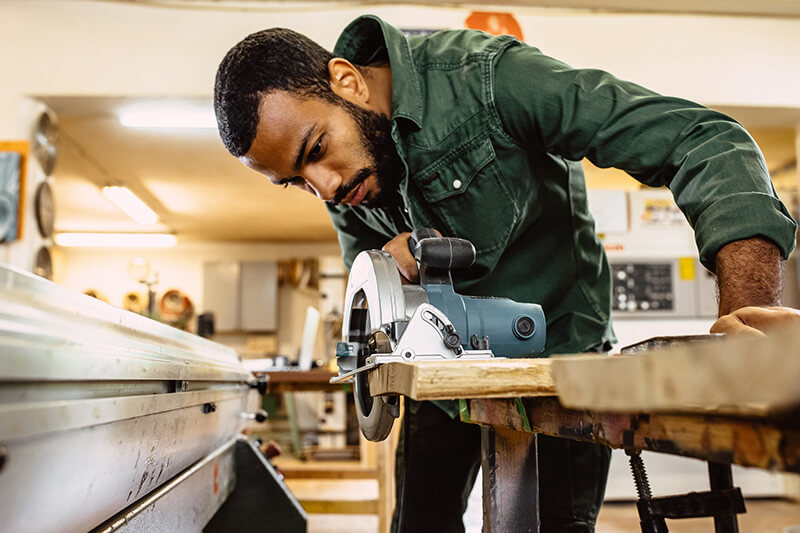DIY Foundation Fixes: What You Can (and Can't) Tackle Yourself

As a proud DIYer, there's something deeply satisfying about rolling up your sleeves and tackling home improvement projects with your own two hands. However, when it comes to foundation issues, it's crucial to understand what you can (and can't) handle on your own. Your home's foundation is the backbone of the entire structure, and any major repairs or interventions should be left to the professionals. That being said, there are certain minor fixes and maintenance tasks that handy homeowners can undertake to keep their foundation in tip-top shape.
In this blog post, we'll explore some DIY foundation fixes you can confidently tackle, as well as the situations where it's best to call in the experts from companies like Alpha Structural, a leading provider of foundation repair solutions.
Minor Crack Repairs
One of the most common foundation issues homeowners face is the appearance of small cracks in basement walls or floors. While large, gaping cracks are a definite cause for concern, hairline cracks (less than 1/8 inch wide) can often be repaired with a little elbow grease and the right materials.
For minor crack repairs, you'll need:
- Concrete patching compound
- Putty knife
- Wire brush or grinder
- Protective equipment (gloves, goggles, mask)
Start by cleaning out any loose debris or crumbling material from the crack using a wire brush or grinder. This will create a rough, pitted surface for the patching compound to adhere to. Next, follow the manufacturer's instructions to mix the patching compound, and use a putty knife to press it firmly into the crack. Smooth the surface and allow the compound to cure completely before painting or sealing.
Remember, this DIY fix is only suitable for minor, non-structural cracks. If you notice larger cracks, horizontal cracks, or cracks that seem to be widening over time, it's best to call in the professionals.
Drainage Solutions
Moisture is a common enemy of foundations, and addressing drainage and waterproofing issues can go a long way in preventing more serious problems down the line. Fortunately, there are several DIY solutions you can implement to keep your foundation dry and protected.
Ensure that you have gutters and downspouts installed that direct water away from your foundation. If your downspout does not direct water away from the base of your home, extensions for these can be purchased at many local home improvement stores. These are relatively simple to install but, if you need assistance, a local handyman can install these for you.
However, it's important to note that some drainage projects, such as installing a full-scale drainage system or applying a specialized waterproof coating, may be better left to the professionals.
Landscaping and Grading
Proper grading and landscaping around your home's foundation can play a significant role in preventing water damage and soil erosion. As a DIY enthusiast, you can take on tasks like:
- Ensuring that the soil slopes away from your foundation, allowing water to drain away from the house
- Installing or extending downspout extensions to direct rainwater at least 6 feet away from the foundation
- Planting shrubs and ground cover that have shallow root systems to prevent soil erosion
- Maintaining proper mulch coverage to retain moisture and prevent soil compaction
While these landscaping tasks may seem simple, they can have a profound impact on the longevity and stability of your foundation.
What to Leave to the Professionals
While there are certainly some DIY foundation fixes that handy homeowners can tackle, it's crucial to recognize when a situation requires the expertise of professional foundation repair contractors like Alpha Structural.
Major foundation issues, such as:
- Large, structural cracks
- Severely uneven floors or walls
- Bowing or leaning walls
- Sinking or settling foundations
These types of problems often require complex solutions like helical piers, wall anchors, or even foundation underpinning. Attempting to repair these issues on your own could not only be ineffective but also potentially dangerous.
Additionally, if you suspect any issues related to the soil composition or hydrostatic pressure around your home, it's best to consult with a professional. These factors can significantly impact the integrity of your foundation and require specialized knowledge and equipment to assess and address properly.
Knowing Your Limits
As a DIYer, it's important to recognize your own limits and when a situation calls for professional help. Foundation issues, if left unaddressed or improperly repaired, can lead to more extensive and costly damage down the line.
If you're ever unsure about the severity of a foundation problem or the best course of action, don't hesitate to consult with a reputable foundation repair company like Alpha Structural. Their experts can provide a thorough assessment and recommend the most appropriate solution, whether it's a DIY fix or a more comprehensive repair.
Embracing the DIY spirit is admirable, but when it comes to your home's foundation, it's better to err on the side of caution. By tackling minor repairs and maintenance tasks yourself and leaving the major issues to the professionals, you can ensure the stability and longevity of your home's foundation while also enjoying the satisfaction of completing DIY projects.
Remember, your home is likely your most significant investment, and protecting its foundation is essential. With the right knowledge, tools, and a healthy respect for when professional help is needed, you can confidently maintain and safeguard this critical component of your home's structure.
Call us today to schedule an inspection or request an estimate




